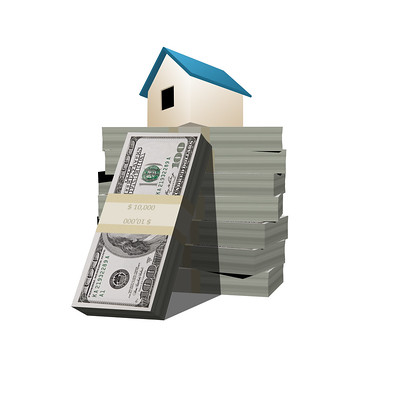
Moving into a new property is one of the most exciting adventures of life. But, it’s also one of the most demanding and expensive. If you think that the costs associated with a new house stop at paying your deposit and mortgage instalments, you are sadly wrong. In fact, there are a number of important and unavoidable payments that must be made when you move into your new home.
To help first-time buyers prepare financially for this significant and exciting step in their lives, here are some of the crucial costs they should be aware of.
1. Survey of the property
All mortgage providers will require a survey of the property to be carried out before they will lend you any money. The purpose of this survey is to confirm that the property is worth the asking price, and, therefore, a safe investment for the lender. The cost of arranging the survey must be paid by you. On the bright side, the results of the report will provide you with a detailed insight into your potential new home, including existing and anticipated problems. There are three different types of survey, from a basic valuation survey to a comprehensive structural survey. The more detailed the survey is, the more expensive it will be. However, it is advisable to pay for the highest level of survey that you can afford in order to get as much information about the potential property as you can.
2. Legal expenses
There are a number of legal problems that can arise when buying a property, so it is important that you pay for the services of a professional to deal with these issues. Your lawyer will also give you guidance and advice on how buying a home works – that can be particularly helpful for first-time buyers. When you are interested in a property, your solicitor will investigate. He or she will notify you of any issues with the property, for example, flooding, development restrictions, and legal disputes. Your lawyer will also deal with the exchange of contracts between you and the seller and will transfer the money and fees on your behalf. Ask for recommendations from friends, family and relatives to ensure you find a reputable solicitor.

3. Stamp Duty Land Tax
The tax bill home-buyers have to pay can come as a nasty shock if they are unaware and unprepared. Stamp Duty Land Tax is compulsory on house purchases over a certain price. The rate of tax that you pay will depend on the value of the property. The rates for Stamp Duty have changed as of December 2, 2014. For more information on this tax and the rates, visit the UK government web page on Stamp Duty Land Tax.
4. Insurance
There are various insurance policies that you should take out when moving to a new home, some of which may be essential before you are approved a mortgage. Buildings insurance is usually a requirement of your lender. These policies typically protect the property, including living essentials such as running water and the bathroom. Your mortgage lender will usually recommend a provider, but it is not compulsory that you take out a policy with them. In fact, it is a very good idea to shop around to ensure you get the best deal. It is advisable to take out contents insurance to protect your possessions within your new home.
5. Council tax
Council tax is compulsory for all people who own or rent a home. The rate of council tax that you pay will depend on the size and location of your property. If you are upscaling to a large house in an affluent area, your council tax is likely to be at the top end of the scale. You may wish to find out if you qualify for a discount. Discounts are available for single occupants, disabled people, and students.
6. Moving costs
The costs of physically moving your stuff from one property to another can add up. If you have a lot of things, you will probably need to hire a van or book the services of a removal company. You may wish to read this article on cutting costs when moving house. If you plan to use a removal firm, remember to check whether their insurance covers for damage to your property during the move. If not, it may be advisable to enter into a policy or extend an existing one for protection.
7. Utilities
You will want to ensure the gas and electricity are connected in your new property before you move in. You can either stick with the existing suppliers for the property to shop around and switch to a better deal. As well as utilities, you’ll also want to think about the costs involved in setting up TV, internet and phone at your new address.

8. Maintenance/decoration at your new home
If your new home requires maintenance work or just decorative alterations to turn it into your style, this is an expense you must factor into your finances. Refitting kitchens and bathrooms can be very costly, and buying furniture and homeware can add up. However, there are ways to be money smart when updating your home. Have a look at these money saving decorating tips, for example.
9. Service charges
If you are moving into a property in a development with shared gardens, you will probably need to pay a monthly service charge. This money goes towards the maintenance of the common areas. This charge is at the discretion of the development owners but can be steep, so do pay attention to these types of charges.
Aside from paying your mortgage, there are many other costs you will need to meet when moving into a new home. This post will help you manage your finances and cut costs where you can so that moving into your home is an organised and exciting experience.